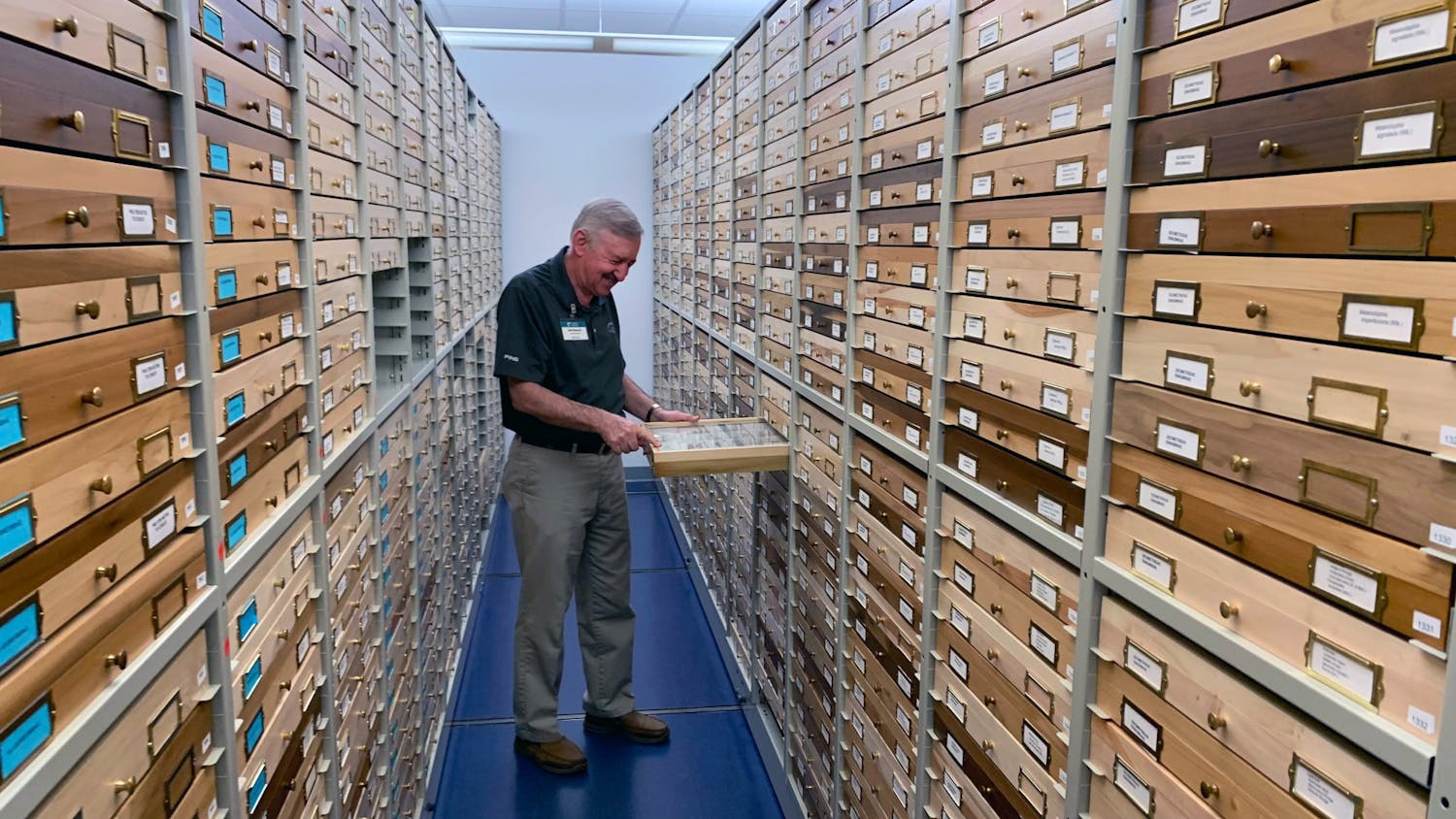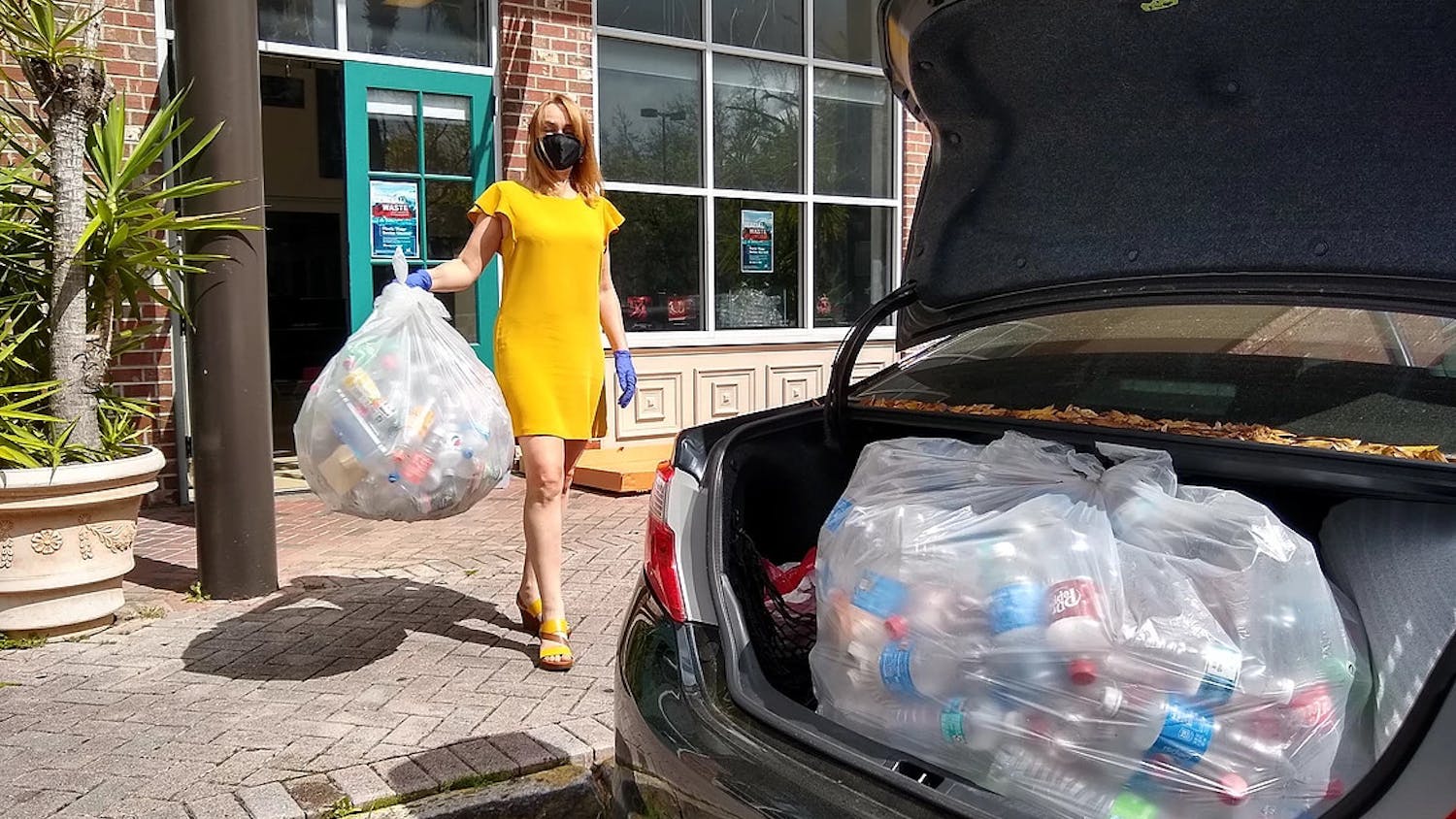UF researchers find new way to irrigate potatoes
UF researchers recently found a new way to save water when irrigating one of Florida’s top cash crops.
Researchers in the Institute of Food and Agricultural Sciences discovered they could use a hybrid-center pivot irrigation system, in which water is sprayed above ground and trickled directly to the plants underground, to conserve water. The system effectively decreased water usage without sacrificing the crops’ quality or yield, said Guodong Liu, an IFAS assistant professor. He said the old irrigation method, called seepage irrigation, only irrigated the plants from under the ground and the water would eventually flow away wastefully. With the new method, two thirds of the water is sprayed above ground, and about one third comes from under the ground.
With the old method, Liu said commercial potato farmers use an average of 543,086 gallons of water per acre, but the new method uses only 230,812 gallons.
"Potatoes are a very important crop in Florida," he said. "The water issue is a huge problem in the state."
The research was conducted on a private farm in Parrish, Florida. In the past three years, UF students, biologists and farmers saved one billion gallons of water because of the hybrid-center pivot system, Liu said.
Millions of gallons of water are used to irrigate the 35,000 acres of potato farms around the state. Liu said Central Florida will experience a water shortage in the near future if farmers aren’t educated on conservation.
- Ashley Martin
UF professor finds mountain erosion increases with more glacier ice
A UF professor was part of a research group that found on some mountains, a large amount of glacier ice can increase sediment erosion.
The group discovered that an increase in the amount of glacier ice on a mountain a million years ago made the mountain smaller, said UF geology professor John Jaeger.
Jaeger studied the St. Elias Mountains, located on the Alaskan coast, and was part of a research group funded by the U.S. National Science Foundation and the Integrated Ocean Drilling Program.
"There is a coupling between the climate and how the Earth responds," Jaeger, 47, said.
Jaeger said the team chose to study St. Elias Mountains because the range has a high rate of erosion, which was a necessary condition.
The team of scientists collected sediment samples around the mountain and found they were younger than they had originally thought, Jaeger said. This showed climate change affected the sediments’ erosion.
He said mountains are eroding faster than they’re growing. Sediments are increasingly leaving the mountains, but this erosion is not noticeable to most.
"There is more going out than coming in," Jaeger said.
- John Avery Guyton
UF researchers create a method for conserving water with pee
A UF researcher established a new method to conserve water used for farming and gardening — with pee.
Treavor Boyer, a UF environmental engineering sciences professor, and his team found that urine can be used to fertilize plants. The team developed a source-separation method, which separates the elements in urine from water. The method will collect nutrients found in urine to create a plant fertilizer.
"Everyone’s urine has a lot of nutrients from the food we eat," Boyer said. "Those nutrients are nitrogen, phosphorus and potassium. Plants need this to grow."
He said his research proves that if someone were to apply the liquid fertilizer to a plant, it should have the same outcome as using synthetic fertilizer. This ultimately saves water.
The source-separation method is also designed to remove pharmaceutical drugs from entering the environment, Boyer said. The method would separate the drugs from the water, just as it separates the urine from the water.
"We are excited about this," Boyer said. "We can save water, create fertilizers and remove pharmaceuticals."
- Ainesey Foira





